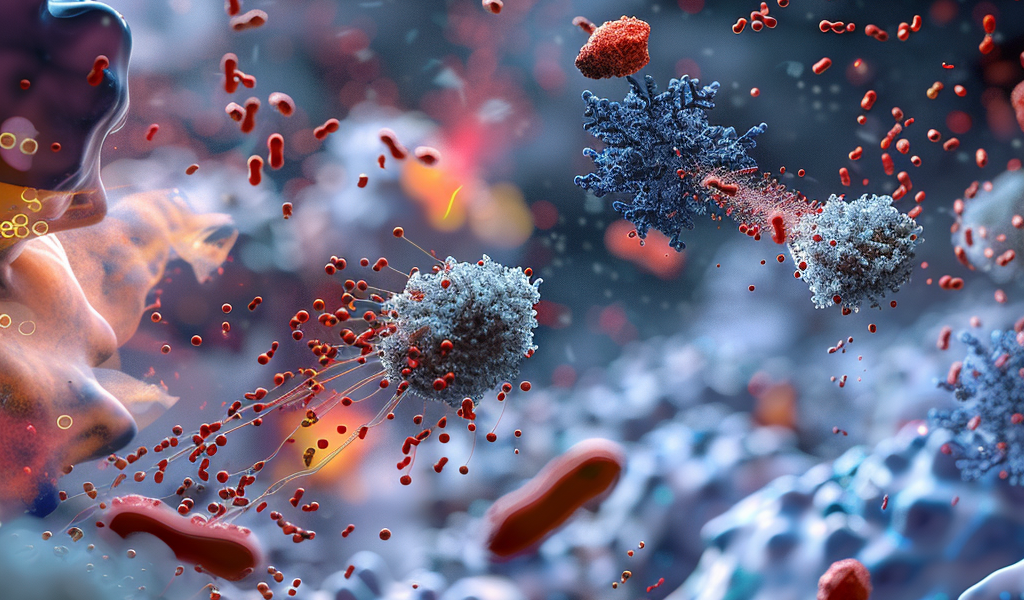Researchers at Brigham and Women’s Hospital have made significant strides in the fight against lung cancer with the development of a groundbreaking nano-immunotherapy. This innovative therapy not only delivers anticancer drugs directly to lung cancer cells but also boosts the immune system’s ability to combat cancer.
The team’s research has shown promising results in both lab-grown cancer cells and mouse models of lung tumors. This new approach could potentially revolutionize the treatment of patients whose tumors have not responded to traditional immunotherapy methods.
Lung cancer is a major global health concern, responsible for a significant portion of cancer-related deaths worldwide. Non-small cell lung cancer (NSCLC) is the most prevalent form of the disease, accounting for approximately 85% of all lung cancer cases.
One common treatment for NSCLC involves the use of immune checkpoint inhibitors, which are drugs that target specific proteins to enhance the immune system’s ability to attack cancer cells. However, many NSCLC patients do not respond well to these drugs, as they primarily target a single protein, PD-L1, which is not universally present in lung cancer tumors.
The new nano-immunotherapy developed by the researchers at Brigham and Women’s Hospital takes a different approach. The therapy involves nanoparticles loaded with cancer-fighting drugs that are delivered directly to the tumor site. These nanoparticles are equipped with antibodies that can bind to two different proteins, CD47 and PD-L1, on the surface of cancer cells.
By targeting multiple proteins, the nano-immunotherapy engages both the innate and adaptive immune systems, enabling them to identify and destroy cancer cells more effectively. This dual-targeting strategy not only enhances the immune response against cancer but also minimizes the side effects and toxicities associated with traditional cancer treatments.
Lead author Tanmoy Saha, Ph.D., emphasized the significance of this novel approach, stating, “Nanoparticles have long been used to deliver targeted medications to tumors, while immunotherapy has transformed cancer treatment by harnessing the immune system’s power against cancer cells. Our nano-immunotherapy combines these two strategies into a single drug delivery system for non-small cell lung cancer.”
Senior author Shiladitya Sengupta, Ph.D., described the mechanism of the therapy as akin to a ‘Velcro effect,’ where the nanoparticles with dual-targeting antibodies effectively latch onto cancer cells, enabling the immune system to identify and eliminate them.
The findings of this study, published in Science Advances, offer new hope for patients with lung cancer, particularly those who have not responded to conventional treatment methods. The development of this nano-immunotherapy represents a significant advancement in the field of cancer research and holds promise for improving outcomes and quality of life for individuals battling this deadly disease.





